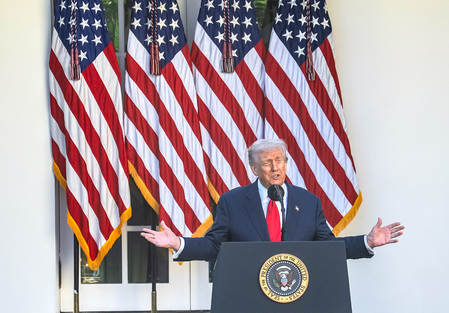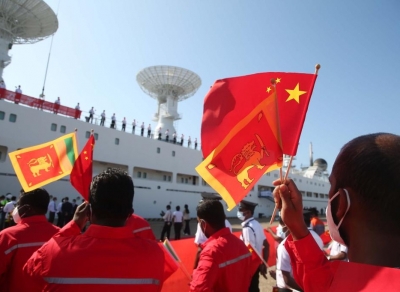
Cairo, Feb 2 (IANS) Egyptian President Abdel-Fattah al-Sisi received a phone call from US President Donald Trump, having “a positive discussion” on the ongoing Israel-Hamas ceasefire in the Gaza Strip brokered by the two countries and Qatar, said the Egyptian presidency.
“The call fostered a positive discussion between the two presidents, underscoring the critical importance of advancing the implementation of the first and second phases of the ceasefire agreement, and ensuring the stabilisation of the ceasefire in the Gaza Strip,” said the Egyptian presidency in a statement.
The two leaders on Saturday also addressed “the urgent need to increase the delivery of humanitarian aid and relief to the residents of Gaza.”
During the call, the Egyptian president stressed “the vital necessity to launch a peace process conducive to a permanent solution in the region.”
He added that the international community trusts Trump’s ability to secure a historic and lasting Israeli-Palestinian peace agreement, which would end the decades-long conflict in the region, said the statement.
Al-Sisi and Trump also exchanged invitations for official visits in the near future, it added.
The talks came after al-Sisi expressed on Wednesday that the displacement of Palestinians is an act of “injustice,” in which Egypt will not participate, Xinhua news agency reported.
Dozens of Palestinians took to the streets in Gaza, protesting against Trump’s proposal to relocate the Strip’s population to Egypt and Jordan and praising Egypt for rejecting the plan.
Protesters gathered at Al-Saraya Square in central Gaza City and Deir al-Balah in the middle of the Strip, waving Palestinian and Egyptian flags, Xinhua news agency reported.
Large banners with images of Egyptian President Abdel Fattah al-Sisi displayed slogans that read, “Egypt will always stand as a true supporter and defender of the Palestinian cause and will never accept the displacement of its people.”
Last week, Trump proposed relocating Palestinians from Gaza to neighbouring Jordan and Egypt, “where they can maybe live in peace for a change,” a plan that was met with regional and international rejection.
–IANS
int/rs




